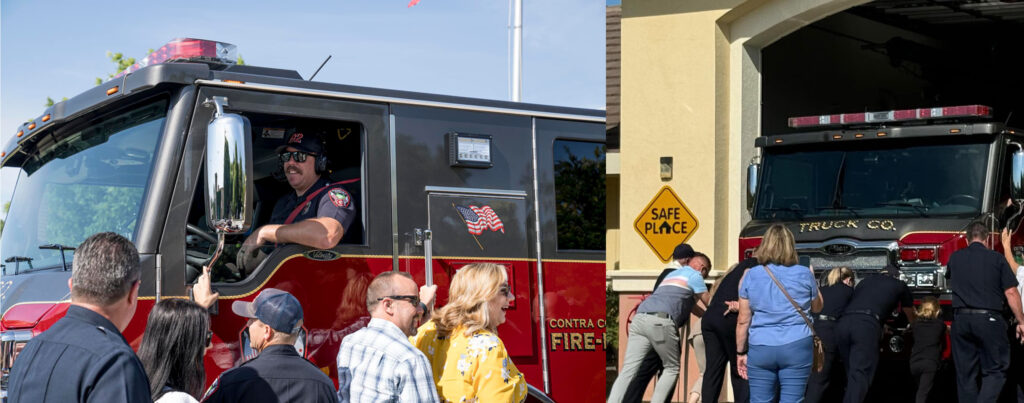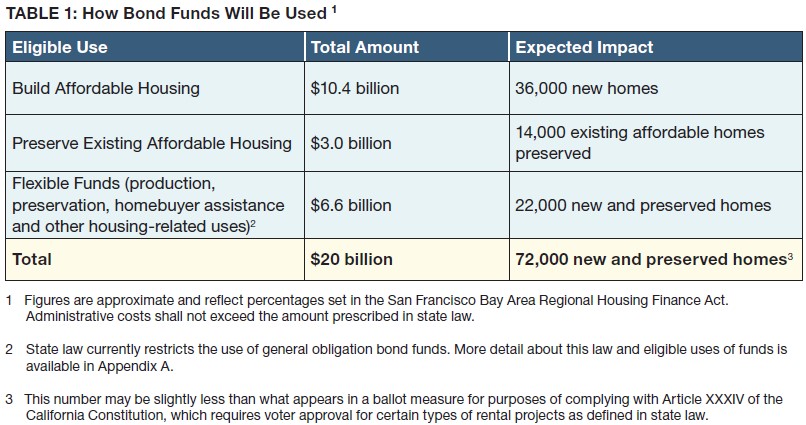
President Jamela Smith-Folds (upper right), Trustees Otheree Christian (bottom left) and Leslie Reckler (bottom right) and Superintendent Dr. Chris Hurst (bottom center) during the West Contra Costa Unified School District Board of Trustees meeting on Wed., June 26, 2024. Video screenshot.
“The school district has shown, repeatedly, that it is unwilling or unable to balance and focus its budget.” – Area 3 Trustee Mister Phillips
“We’re in a budget crisis. I’m no longer rubber-stamping things that should be investigated.” Area 5 Trustee Leslie Reckler
Staff will work “collaboratively” with district, community leaders and “alongside Contra Costa County Office of Education” – Assoc. Superintendent Dr. Kim Moses
By Allen D. Payton
In response to the Thursday article from EdSource.org republished by the Herald on Friday, regarding the takeover of the West Contra Costa Unified School District budget by the county Office of Education, due to the failure to pass their Local Control Accountability Plan (LCAP) budget, WCCUSD board members and staff shared their thoughts, concerns and plans.
As previously reported, WCCUSD may be on the verge of turning over control of its budget and day-to-day running of the district to the county after the school board rejected the district’s Local Control Accountability Plan on Wednesday night, limiting the chance of passing a 2024-25 district budget by July 1, as required by state law.
Without passing an LCAP — a document that sets district goals to improve student outcomes and how to achieve them — the board cannot vote on the proposed budget, said Dr. Kim Moses, associate superintendent of business services at West Contra Costa Unified School District (WCCUSD). The two are linked; the LCAP is a portion of the budget and gives the district a road map on how to allocate funding for its $484 million budget. The district risks losing local control over funding decisions. Trustees voting no said it didn’t reflect priorities of the community and was not transparent.
The vote on the LCAP failed 1-2-1 with Board President and Area 1 Trustee Jamela Smith-Folds voting in favor, Area 3 Trustee Mister Phillips and Area 5 Trustee Leslie Reckler voting against, and Area 2 Trustee Otheree Christian voting to abstain. Board Clerk and Area 4 Trustee Demetrio Gonzalez Hoy was absent.
An email was sent Friday afternoon, June 28, 2024, to all five WCCUSD board members and Superintendent Dr. Chris Hurst. But Hurst is out of the office until July 12, so the question was then sent to Associate Superintendent of Business Services, Dr. Kim Moses. He later forwarded the email to Raechelle Forrest, Director of Communications for the District. They were asked what the board and district will do by this Sunday to avoid the takeover. Calls were also made to each board member.
“I’m waiting to hear from the board president. Because the president is the only one who can call a meeting, said Christian.
Phillips responded, “First, the county Office of Education will not take over the school district. The county office will create a budget for the school district with the school district’s input. Second, I think that is best for the school district. The school district has shown, repeatedly, that it is unwilling or unable to balance and focus its budget.”
“Now, we have a chance at a balanced and focused budget that prioritizes the school district’s strategic plan,” he continued. “That is what we need, and I do not mind working with the county office to get it.”
“As far as I am concerned, the county office is part of local control,” Phillips added.
When asked if a special board meeting would be called, Reckler said, “I don’t have any knowledge of a board meeting, as of now.” But she believes a special board meeting doesn’t require the president to call one and can be called by two members.
“It’s not something I’m going to do,” she added.
Asked about not approving the LCAP Reckler said, “It’s certainly not ideal. I wish we could have done it ourselves. But I needed to send a strong message.”
“It’s been a long-standing concern of mine, the transparency about the LCAP,” she continued. “There are different parts of the budget including the LCAP designated for English-language learners, although districts have wide latitude in how they spend those funds. I’ve been deeply concerned over information we get back on how the programs are working.”
“We’re in a budget crisis” Reckler stated. “I’m no longer rubber-stamping things that should be investigated in this crisis. Is it ideal? No. Am I proud of it? Not really. I’m very thoughtful in my decisions and I needed to put my foot down.”
She later shared, “I looked up the ability to call a meeting. Ed Code 54956 says that the president or a majority of the board can call for a meeting. So, for the WCCUSD, it would be three members.”
On Thursday she posted a statement about the matter her official Facebook page. But first, Reckler wrote, “Last night’s meeting was a memorable one and probably a first.
The LCAP portion of 2024-2025 budget failed to pass. Because the LCAP failed to pass, the 2024-25 site plans and the 2024-2025 budget could not be considered. I voted No, and it is important for you to know why. I have a fiduciary and accountability responsibility, and in these extremely lean fiscal times, I will not vote in the affirmative on a $64.8 million dollar plan that is not transparent to me and to the general public.
Voting NO on the LCAP was not something that I took lightly at all. But after years of asking for changes in how information is presented to me, I am no longer rubber stamping this work.
Thank you to the LCAP committee (past and present) for years of raising issues with the process and the final result.
The Contra Costa County Office of Education will advise further on what will happen next with the budget. I will keep you posted on upcoming information as I receive it.”
Here is the video from the June 12th meeting LCAP public hearing
https://www.youtube.com/watch?v=3UzHxtXawu4 3-hour, 5-minute mark. There are also several comments about the LCAP in public comment at the 28 minute mark.
Here is the Board’s agenda from the June 12th LCAP public hearing meeting.
https://simbli.eboardsolutions.com/…/ViewMeeting.aspx…
When the video is posted for the June 26th meeting, I will post that as well.
My comment on the LCAP from June 26, 2024 meeting is below.
(I may have made some changes on the fly while speaking.)”
Reckler Statement on LCAP Vote
“For the past two years and now this year, making it three years, I find myself making the same comments about the LCAP. That is, the presentations concentrate heavily on state required compliance metrics and do not succinctly show how the programs in the LCAP performed, how money was spent, and how the community’s feedback was incorporated into the plan.
To me, there are three parts to this:
Money, program success and community engagement reflected In the plan.
First, money.
How much money did you get this year and how much money did you get last year and what is the difference? How much carryover do you have and why? Then, where did you miss on big dollars – either wildly overspending or underspending and why?
Second, how did your programs perform?
What programs did you hit, what programs did you miss and what programs don’t you know the answer to and why, and for the programs that you don’t know. What can you guestimate? For all of these metrics, what’s the reasoning that there were successes or misses.
Then, what are you changing in the LCAP and why along with the corresponding dollars.
Finally, community engagement. What feedback did the LCAP committee give you and how did you incorporate it? I think there are only five LCAP members. We used to have a robust, messy, beautifully engaged LCAP committee of probably 30 members and we were feeling heard.
While I value deeply the work of staff, and I do recognize the pressures that you are under, I am frustrated that I have to spend an entire weekend trying to figure out the changes in the LCAP. It should be self-evident.
This new, three-year LCAP seems to have collapsed so many categories into big buckets that it will make it hard to track any success metrics over the next three years. To me, this document seems less transparent than ever before.
I don’t know how else to get your attention, and I will not be held hostage. For all of these reasons, I’ll be voting No.”
District Will Work “Collaboratively” With District, Community Leaders and “Alongside CCC Office of Education
Associate Superintendent Moses, the District’s Chief Business Officer, responded with the following:
“The West Contra Costa Unified School District is dedicated to working collaboratively with district and community leaders to address the expressed concerns related to the 2024-25 LCAP adoption. District leaders are working alongside the Contra Costa County Office of Education to ensure that the concerns related to the LCAP plan are addressed as quickly as possible. Unfortunately, this will not occur before the July 1 deadline for adoption.
“West Contra Costa Unified School District is not subject to losing local control of our budgetary functions as a result of the recent inaction by the Board. We must now revert to the last board-adopted budget which is the 2023-24 third interim budget, adopted on May 29, 2024. However, without an adopted LCAP plan, we must exclude the LCAP Supplemental/Concentration funding from our current budget.
“If an LCAP plan and budget are not adopted by August 15th, the Contra Costa County Office of Education may impose a budget for our district’s use. In the interim, WCCUSD will be able to continue processing payroll without interruptions and we will be able to maintain all expenses related to the general operating costs within the district, such as utilities, required materials and supplies, and other operational necessities. Throughout this process, the WCCUSD business services team is dedicated to managing this budget transition while continuing a high level of service for our students, staff, and schools.”
Read More
Honored with awards each year
By Allen D. Payton
Having finished commercial aviation and tourism studies at Columbia College and working for an airline at an airport in Peru, Kelly Gonzales immigrated to the United States at age 19. Then after working in banking and financial services for 20 years, she wanted to pursue her passion and did that by forming Pacific Senior Care Services in 2014 using her skills to help place people into care homes.
Gonzales was particularly inspired by the care her retired Army colonel and veterinarian father needed and received in Lima, Peru after he suffered a stroke. But she couldn’t really help him living over 15 hours away by flight. Instead, Gonzales and her team have been able to fulfill the company’s slogan and mission of “Meeting Elder Needs With Love and Compassion” in Contra Costa County and the Bay Area.
“My father was the main reason I started the business,” she said.
Now her company is celebrating its 10th Anniversary in business. Gonzales opened the company’s main office in Walnut Creek.
“I thank the Lord for enabling me to fulfill my calling,” she shared. “I never thought in my life I would be doing this. Working with the right people we’ve been able to help many families in the community. It’s been a blessing. I have good people around me, our support staff, and contractors.” She thanked them and “all those who gave us leads through the years.”
“Families who we’ve helped call us later and let us know of others we can provide services to,” Gonzales stated.
The company’s short-term plans include, “opening an office in Sacramento, later this year, Lord willing, and relocate our other office from San Mateo to Redwood Shores to serve families on the peninsula,” she said.
Gonzales’ daughter, who is a Certified Medical Assistant and attended Diablo Valley College, and now in the process of earning her nursing designation, works with her making it a family-operated business.
“We are also forming a homecare agency with partners in the industry,” she continued. They plan to also offer that service in the Sacramento area and San Mateo County.
Gonzales’ and Pacific Senior Care Services were chosen to represent the National Long Term Care Planning Council to create a team in the Bay Area.
“The San Francisco Bay Elder Planning Council was created to help solve critical aging issues and planning for the final years by providing a free central source of information, with senior advisors and professionals within our network,” she shared. “Guiding family members seeking help for their loved ones is the main focus. Another purpose of our planning council is to encourage people to prepare for the future needs for aging services.”
Awards & Honors
Under Gonzales’ leadership Pacific Senior Care Services PSCS) has also been honored with several awards through the year, including being named one of the 2024 Best Full Service Senior Care Providers in California by Global Health & Pharma Magazine, Social Care Awards.
Last year the company was honored in the California Business Awards 2023 as a Leading Provider of Senior Care Services – Northern California by the New World Report and in 2017 and 2022 PSCS was honored for Excellence in Customer Service by City Beat News.
The company has been honored with other awards every year they’ve been in business.
For more information about Pacific Senior Care Services visit their website www.pacificseniorcareservices.net.
Read MoreFor failure to pass LCAP budget; District must operate under last year’s budget; board must act by Sunday to avert take over.
By Monica Velez, EdSource.org (republished with permission)
First Published June 27, 2024 – The West Contra Costa Unified School District may be on the verge of turning over control of its budget and day-to-day running of the district to the county after the school board rejected the district’s Local Control Accountability Plan on Wednesday night, limiting the chance of passing a 2024-25 district budget by July 1, as required by state law.
Without passing a Local Control Accountability Plan (LCAP) — a document that sets district goals to improve student outcomes and how to achieve them — the board cannot vote on the proposed budget, said Dr. Kim Moses, associate superintendent of business services at West Contra Costa Unified School District (WCCUSD). The two are linked; the LCAP is a portion of the budget and gives the district a road map on how to allocate funding for its $484 million budget. The district risks losing local control over funding decisions. Trustees voting no said it didn’t reflect priorities of the community and was not transparent.
It’s a rare situation. Districts routinely pass budgets at the end of June to close the fiscal year and start a new one.
The vote on the LCAP failed 1-2-1 with President and Area 1 Trustee Jamela Smith-Folds voting in favor, Area 3 Trustee Mister Phillips and Area 5 Trustee Leslie Reckler voting against, and Area 2 Trustee Otheree Christian voting to abstain. Board Clerk and Area 4 Trustee Demetrio Gonzalez Hoy was absent.
District and Contra Costa County Office of Education officials warn that a failure to pass a budget and LCAP by July 1 will cede financial control to the county office. The district can still act by midnight Sunday to avert a takeover, but district officials are assuming that will not happen.
The district also would face difficulties getting the county’s approval of the budget. The state Fiscal Crisis and Management Assistance Team (FCMAT), which focuses on helping districts solve and prevent fiscal challenges, found in a recent analysis that the district had overspent, and concluded that the school board had been unable or unwilling to make cuts.
In a statement to EdSource, Moses wrote she was “deeply disappointed” that the board didn’t pass the LCAP. The responsibility to adopt the LCAP and 2024-25 school year budget will be in the hands of county officials. Until they impose the new plan and budget, Moses said, the district will revert to operating under last year’s budget.
“We are confident that the county will review our circumstance with a student-focused lens and do what is necessary to support our students,” the statement said. “In the interim, we will be able to continue processing payroll without interruptions, and we will be able to maintain all expenses related to the general operating costs within the district, such as utilities, required materials and supplies, and other operational necessities.”
But because the district is functioning on last year’s budget, some schools won’t receive the funds they need, and the district can’t move forward with new goals set, said Javetta Cleveland, a school business consultant for West Contra Costa.
“This is really serious to go forward without a budget — the district cannot operate without a budget,” Cleveland said during the meeting. “The district can’t meet or establish priorities without a budget.”
Cleveland asked the board to reconsider approving the LCAP and have the Contra Costa County Office of Education approve the LCAP with conditions that would allow revisions after receiving feedback from parents. But that didn’t happen.
Budget shortfalls
District officials are projecting a $31.8 million budget deficit over the next three school years, with about $11.5 million in shortfalls projected for the upcoming school year. The plan was to use reserve funds over three school years to make up the shortfall.
To address budget shortfalls, the board has also had to eliminate more than 200 positions since last year. The most recent cuts were voted on in March. But at the same time, the district was dealing with three complaints, including allegations that the district is out of compliance with the law because teacher vacancies have not been filled and classes are being covered by long-term or day-to-day substitutes, which district officials acknowledged was true.
“While the result of last night’s board meeting complicates an already challenging financial situation, members of the community should know that WCCUSD schools will continue to operate, and employees will continue to be paid as we work through the LCAP approval process,” said Marcus Walton, communications director for county office. “At this point, it is the role of the Contra Costa County Office of Education to support WCCUSD staff to address the board’s concerns and implement a budget as soon as possible.”
FCMAT conducted a fiscal health risk analysis on West Contra Costa in March and found the district is overspending.
While the FCMAT analysis concluded the district has a “high” chance of solving the budget deficit, it highlighted areas it considers high-risk, including some charter schools authorized by the district also being in financial distress; the district’s failure to forecast its general fund cash flow for the current and subsequent year, and the board’s inability to approve a plan to reduce or eliminate overspending.
FCMAT’s chief executive officer, Michael Fine, was not available for comment.
The vote
President Jamela Smith-Folds was the only trustee to vote yes on the LCAP. She said she wants to see more transparency but that it’s important to keep local control over the LCAP and budget.
“I would be remiss if I didn’t say that there are things we need to do differently, but I think everyone is acknowledging that,” Smith-Folds said. “Now the next step after you acknowledge that is to show change and consistency.”
Trustees Leslie Reckler and Mister Phillips voted down the LCAP. Phillips said it was because he doesn’t believe that what the community asked for is reflected in the document.
“I have consistently advocated for a balanced and focused budget since joining the school board in 2016,” Phillips said in an email. “The proposed budget was neither. With my vote, I invited our local county superintendent to the table. I hope that she will work with us to create a balanced and focused budget that prioritizes the school district’s strategic plan.”
Reckler said that for the last two years, she had continued to ask staff to show how programs and the LCAP performed, how community feedback is being incorporated, and how money is being spent.
“I’m frustrated I have to spend an entire weekend trying to figure out the changes in the LCAP. It should be self-evident,” Reckler said during the meeting. “This document seems to be less transparent than ever before. I don’t know how else to get your attention, and I won’t be held hostage. For these reasons, I am voting ‘no.’”
Trustee Otheree Christian abstained, saying that there needs to be more transparency in the LCAP but did not elaborate further or respond to requests for comments on why he chose not to vote.
Board member Demetrio Gonzalez Hoy was absent because of personal family reasons, according to his social media post. He called the vote a failure of the board, including his absence.
In a recent meeting with the District Local Control Accountability Plan Committee (DLCAP), made up of parents and members of community organizations, committee members shared their frustrations, saying they didn’t feel heard and needed more information about programs, Superintendent Chris Hurst said. Gonzalez Hoy said he agreed with the committee that there needs to be more transparency and in regards to spending priorities, community leaders need to be heard.
“With that said, what we should have done is ensure that this does not happen in the future and that the DLCAP committee is taken seriously in their charge,” Gonzalez Hoy’s post said. “Unfortunately, instead of advocating for that and ensuring this occurs, I believe that some on our board want certain adults leading our district to fail and that’s really what led to a vote last night.”
During Wednesday night’s meeting, many community members asked the board to stop making staffing cuts and to reject the LCAP and budget proposals, saying that both proposals didn’t meet student needs, and disenfranchised low-income, English learners, and students of color. Some speakers questioned if the LCAP complied with the law.
The district team that put together the LCAP said the planning document complies with the law, according to Moses, as do the officials at the county office of education that reviewed the document. The county gives the final stamp of approval after the board passes the LCAP, and if something needs to be fixed, they can approve the document with conditions, she added.
“I do know, with any large document, nothing is perfect in the first draft,” Moses said during the meeting. “I’m not sure if there is something we need to take a look at, but if so, I’ll restate this is a living document; if we do find that there is an area that needs more attention, we’ll give attention to that area.”
Moses said she agrees with the advocates — the district needs to serve students better. She and the district are committed to strengthening communication with the community and explaining how the strategies in the 203-page document are helping students.
As of Thursday evening, an emergency meeting has not been scheduled. The next board meeting is scheduled on July 17.
Monica Velez covers West Contra Costa Unified school district, student well-being and math.
Allen D. Payton contributed to this report.
Read MoreSB 1327 gets required two-thirds vote approving $500 million in annual tax credits
Funded by fee on large internet companies
SACRAMENTO – Senator Steve Glazer’s bill to help strengthen local newsrooms with $500 million in annual tax credits was approved Thursday, June 27, 2024, on a required two-thirds vote. It now moves to the Assembly.
The bill, SB 1327, was approved on a bipartisan 27-7 vote. A two-thirds vote was required because the bill assesses a Data Extraction Mitigation Fee on large Internet companies. It would distribute the money through tax credits to California news organizations.
“The passage today of my bill, SB 1327, is a step toward helping to revive news organizations across California,” said Glazer, D-7-Contra Costa. “Independent journalism is the lifeblood of our democracy by keeping our citizens informed on the workings of their government.
“This measure will mitigate the damage caused by platforms who use our personal data and their subsequent advertising profits to gut our mainstream news channels. I will continue to work with all stakeholders in the weeks ahead to chart a path forward that restores and expands independent news organizations, so critical to our democracy.”
Assemblywoman Buffy Wicks, D-14-Oakland, who represents portions of West Contra Costa County and has her own legislation, AB 886, to help news organizations, applauded the bill’s passage.
“I am encouraged to see SB 1327 move forward, and grateful to my Senate colleagues for recognizing the importance of this issue,” said Wicks. “The advancement of Sen. Glazer’s bill will allow us to continue working collaboratively toward a solution that protects and grows newsrooms across California.”
Read MoreSee parade route
What are you doing on Saturday? Our 25th Anniversary Parade starts promptly at 9 am at 4th and Main Streets and will conclude at Civic Center Plaza. Grab your spot along the route to cheer on your faves. While out, why not grab a bite to eat before heading on over to Oakley Summer Fest?
Summer Fest will be held in Civic Center Plaza and on Main Street from Norcross Lane to Vintage Parkway starting at 11 am. We’ll have a kids area equipped with inflatable jumpers, a giant slide, trampoline bounce, and more! Be sure to bring $5 cash to purchase a wristband at this event at the Oakley Recreation tent next to City Hall.
#OakleyRecreation #Oakleyturns25
Read More
First-of-its-kind measure to help build, preserve more than 70,000 additional homes
Contra Costa County would receive $1.9 billion
By John Goodwin, Assistant Director of Communications & Rebecca Long, Director, Legislation & Public Affairs, Metropolitan Transportation Commission
The Bay Area Housing Finance Authority (BAHFA) on Wednesday, June 26, 2024, adopted a resolution to place a general obligation bond measure on the November 5 general election ballot in each of the nine Bay Area counties to raise and distribute $20 billion for the production of new affordable housing and the preservation of existing affordable housing throughout the region. BAHFA is jointly governed by the Association of Bay Area Governments (ABAG)’s Executive Board and by the BAHFA Board, which is comprised of the same membership as the Metropolitan Transportation Commission (MTC).
The bond could create 72,000 new affordable homes – more than double what would be possible without a bond. Without more funding, only about 71,000 affordable homes will be built or preserved in the Bay Area over the next 15 years – a status quo that is failing to meet the needs of the people who live and work here.
Currently, the Bay Area doesn’t have enough homes for the people who live here. As a result of the region’s housing shortage:
- In 2022, 37,000 people were unhoused in the Bay Area.
- 1.4 million people—23% of Bay Area renters—spend over half their income on rent.
- High rents and home prices force people to live far from work, making congestion and pollution much worse, and putting a major strain on working families.
- Too many Bay Area residents live in overcrowded and unsafe housing.
- Vital employees and community members are leaving the area.
Wednesday’s unanimous vote by the BAHFA Board marks the final discretionary step in the process to place the measure on the November ballot. Under state law, each Bay Area county will now take a non-discretionary, ministerial vote to place the measure on the ballot in that county, in accordance with election deadlines.
The BAHFA bond measure currently would require approval by at least two-thirds of voters to pass. Voters throughout California this November will consider Assembly Constitutional Amendment 1 (ACA 1) — which would set the voter threshold at 55 percent for voter approval of bond measures for affordable housing and infrastructure. If a majority of California voters support ACA 1, the 55 percent threshold will apply to the BAHFA bond measure.
“Today’s vote is the culmination of so many years of effort by so many people all around our region,” observed BAHFA Chair and Napa County Supervisor Alfredo Pedroza. “The Bay Area’s longstanding housing affordability problems affect all of us, our friends, our neighbors and our family members. This vote is about preserving opportunity for everyone.”
The proposed BAHFA bond measure calls for 80 percent of the funds to go directly to the nine Bay Area counties (and to the cities of San Jose, Oakland, Santa Rosa and Napa, each of which carries more than 30 percent of their county’s low-income housing need), in proportion to each county’s tax contribution to the bond. In consultation with its cities and towns, each county would determine how to distribute bond funds to best meet its jurisdictions’ most pressing housing needs. These distributions would include:
- Contra Costa County: $1.9 billion
- Alameda County: $2 billion
- Marin County: $699 million
- Napa County: $118 million
- San Francisco County: $2.4 billion
- San Mateo County: $2.1 billion
- Santa Clara County: $2.4 billion
- Solano County: $489 million
- Sonoma County: $553 million
- City of Napa: $246 million
- City of Oakland: $765 million
- City of San Jose: $2.1 billion
- City of Santa Rosa: $242 million
The remaining 20 percent, or $4 billion, would be used by BAHFA to establish a new regional program to fund affordable housing construction and preservation projects throughout the Bay Area. Most of this money (at least 52 percent) must be spent on new construction of affordable homes, but every city and county receiving a bond allocation must also spend at least 15 percent of the funds to preserve existing affordable housing. Almost one-third of funds may be used for the production or preservation of affordable housing, or for housing-related uses such as infrastructure needed to support new housing.
The California Constitution currently does not allow bond funds to be used for tenant protections such as rental assistance, but planned investments in new housing and affordable housing preservation will protect tens of thousands of low-income renters and vulnerable residents.
The BAHFA Board also adopted on Wednesday, resolutions approving the Authority’s Business Plan and its Regional Expenditure Plan, which explain the prioritization for use of the funds that would be directly administered by BAHFA.
Oversight and accountability provisions to be included in the BAHFA bond measure include the creation of a special bond proceeds account; establishment of a Citizens’ Oversight Committee that would review the expenditure of bond proceeds and report to the BAHFA and ABAG Executive Boards on whether the funds were spent appropriately; an independent annual performance audit; a requirement that all bond-projects be consistent with state laws on labor standards; a requirement that administrative costs not exceed the amount prescribed in state law; and a prohibition against any public official who voted to send the ballot measure to the voters bidding on any work funded with proceeds from the bond.
The ABAG Executive Board voted unanimously at its April meeting to adopt a resolution approving BAHFA’s Business Plan and its Expenditure Plan, as well as to endorse placement of the bond measure on the November ballot. In her remarks preceding the vote, ABAG President and Napa County Supervisor Belia Ramos noted, “This is a remarkable milestone moment for our region. Housing stability is essential for our community to thrive, and this proposal is a once-in-a-generation opportunity.”
Read the Bond Report and learn more about the bond measure, here and here.
Read MoreArraignment scheduled for Thursday afternoon
By Ted Asregadoo, PIO, Contra Costa District Attorney’s Office
The Contra Costa District Attorney’s Office filed charges on June 25th against two men who cut a utility line that severed 911 service for residents in Pinole, Hercules, and San Pablo.
31-year-old Jesus Francisco Arias-Ayala of Hayward and 49-year-old Daniel Antonio Mena-Diaz of Richmond were arrested by Pinole Police on June 22nd. On that evening, around 7:15 pm, officers responded to reports of a 911 system outage. They traced the issue to a bridge near the Pinole-Hercules city line on San Pablo Avenue. Upon arrival, officers found Arias-Ayala and Mena-Diaz under the bridge.
After a brief chase, both suspects were apprehended, arrested, and booked into the Martinez Detention Facility.
After reviewing the case, the Contra Costa District Attorney’s Office charged Arias-Ayala with a felony for cutting utility line [PC 591], felony vandalism [PC 594(a)], a misdemeanor for resisting, obstructing, or delaying a peace officer [PC 148(a)(1)], and a misdemeanor for possession of burglar’s tools [PC 466].
Mena-Diaz’s two felony charges are the same as Arias-Ayala, as is one misdemeanor charge of resisting, obstructing, or delaying a peace officer.
Both men are scheduled to be arraigned at 1:30 pm on Thursday, June 27th in Martinez.
Case No. 02-24-00829 | The People of the State of California v. Arias-Ayala, Jesus Francisco
Case No. 02-24-00830 | The People of the State of California v. Mena Diaz, Daniel Antonio
Read More
Officials, firefighters push in the new tiller truck at Con Fire’s Station 92 in Brentwood on Tuesday, June 18, 2024. Photos: (left) Con Fire (right) courtesy of Brian Oftedal
Celebrated during “push-in” ceremony
By Allen D. Payton
Con Fire shared on their Facebook page on Wednesday, June 26, 2024, “In case you missed it! Last week, Contra Costa Fire pushed in not one, but TWO new tillers! Station 92 in Brentwood received a brand-new Pierce 100′ Heavy Duty Tiller.
This fire truck is capable of a 100-foot vertical reach, can support 1000 GPM @ 100 PSI, has 600 horsepower, and has a Cummins X15 engine!”
Station 81 in Antioch also received a new tiller truck. (See related article)
Known as a “push-in ceremony” the event was attended by Contra Costa County District 3 Supervisor Diane Burgis, Brentwood Vice Mayor Susannah Meyer, Councilmembers Jovita Mendoza and Tony Oerlemans, Contra Costa County Fire Commissioner Brian Oftedahl, and Con Fire Chaplain Fr. Robert Rein. They and several firefighters helped push the truck into the station.
A fire truck push-in ceremony is a long-standing tradition in the fire service. It dates back to the days of horse-drawn equipment when firefighters had to physically push the equipment back into the station after returning from a call.

Deputy Chief Aaron McAlister speaks as the Station 92 crew listens during the push-in ceremony. Photo: Con Fire
Burgis wrote on her official Facebook page wrote, – Celebrating the push-in ceremony for the newest apparatus at Fire Station 92 in Brentwood this morning. This $2 million…heavy duty tiller is now ready for use by the crew of Station 92 to protect the community. Thanks to Con Fire leadership, Con Fire Commissioners Mark DeMarce and Brian Oftedal, and Brentwood Councilmembers Jovita Mendoza, Susannah Meyer and Tony Oerlemans for prioritizing fire protection in Brentwood and throughout Contra Costa County.
According to firesafetysupport.com, Tiller Trucks are the most common and versatile fire trucks. They have a large scoop that can be used to pull water from a hose and transport it to the fire scene. They are also equipped with a ladder that can be used to reach high spots or rescue people trapped in a burning building.
Oftedahl wrote on his official Facebook page wrote about the ceremony – Another incredibly historic event in the City of Brentwood this morning. Brentwood now has its first ever aerial ladder truck, providing service to the businesses and residents of East Contra Costa County.
I feel honored to be part of the push in ceremony for Truck 92 and look forward to watching them serve our communities.”
Read More
Phone lines down twice in June due to theft of copper cables affecting Pinole, Hercules and San Pablo Police, some city departments
Calls continue to be answered by Contra Costa Sheriff’s Office
Third arrest for Daniel Mena-Diaz this year; third suspect still at large
By Commander Matt Avery, Pinole Police Department
At approximately 7:20 PM on Saturday, June 22nd, our Communications Center was alerted to a disruption in our 911 and business lines. Our dedicated communications staff promptly reached out to the Contra Costa County Sheriff’s Office, swiftly rerouting our 911 calls to their communications center. Simultaneously, our patrol units were dispatched to the area where the previous copper cable theft occurred on June 4th, which led to the disabling of our 911 and business lines. Upon arrival, three male subjects, in defiance of officers’ orders, fled into an open field toward a residential area.
Our officers established a perimeter with the assistance of Hercules officers. Recognizing the need for additional resources, they requested the aid of the Contra Costa County Sheriff’s Office helicopter and a canine unit. This joint effort led to the successful apprehension of two suspects, with the third remaining at large. A thorough search of the scene revealed tools used for cutting copper cables, and one of the suspects was found in possession of such tools upon arrest.
The suspects are Jesus Arias-Ayala, a 31-year-old male out of Hayward, and Daniel Mena-Diaz, a 49-year-old male out of Richmond. Officers questioned both and they were later booked at the Martinez Detention Facility on the following charges:
- Jesus Francisco Arias-Ayala: felony vandalism and damaging telephone lines
- Daniel Antonio Mena-Diaz: felony vandalism, damaging telephone lines, and violation of probation
That same day, a message to the public was posted on the Pinole PD’s Facebook page reading, “Our phone lines are still down. AT&T is working on restoring service but we do not have an estimated time.
In the interim:
- Emergencies: call 911 and the Contra Costa Sheriff’s Office will transfer the call to Pinole Dispatch for police emergencies
- Non-emergencies: call 510-724-1111 or 510-900-4246 to be connected to Pinole Dispatch
- Records: call 510-914-0375 or email pdrecords@ci.pinole.ca.us
Additionally, many lines are down throughout the other City departments. Please visit: www.ci.pinole.ca.us for email contact information.”
Then, a week later on June 11th, a message was posted on the department’s Facebook, “911 PHONE LINE HAS BEEN RESTORED
911 service has been restored to the Pinole Dispatch Center. 911 calls in the cities of Pinole, Hercules, and San Pablo are being answered by our dispatchers.
The 911 and business phone outage was the result of two incidents where multiple phone cables were cut and stolen for their copper content. City staff has been working with AT&T and CalOES since the thefts to restore 911 service as well as establish temporary phone lines. City staff will continue to work with AT&T and third-party vendors to restore full telephone to all City departments.
Some Pinole and Hercules community members with traditional landline service also remain affected by the outage.”
Then in a post on the Pinole PD’s Facebook page on Saturday, June 22, the public was informed, “Our 911 and non-emergency lines are down again. The Contra Costa Sheriff’s Office is answering 911 calls and transferring the calls to our Dispatch Center, which is operating on a secondary phone system.
For Emergencies
-Call 911: will be answered by CCCSO and forwarded to our Dispatch Center
-Text 911: will be answered by our Dispatch Center.”
Then, in a Facebook post on Wednesday morning, June 25, the public was informed by Pinole PD, “Our phone lines remain down. The Contra Costa Sheriff’s Office is answering 911 calls and transferring the calls to our Dispatch Center, which continues to operate on a secondary phone system. We have restored our 510-724-1111 line but our main business line, 510-724-8950, remains down.” Alternate contact information was also provided.
911 calls for Pinole, Hercules and San Pablo continue to be answered by the Contra Costa Sheriff’s Office and transferred to our Communication Center.
- For emergencies, call or text 911 (text-to-911 is direct to the Pinole Communication Center)
- For non-emergencies, call 510-724-1111 or 510-900-4246
- For Pinole Records: call 510-588-1226
- Please visit https://tinyurl.com/3apnxxen for other Police Department contact information
Several business lines for other City departments are also down. For contact information for other City departments, please visit www.pinole.gov/contact/contact_us.
The incident is still under investigation, and anyone with information is urged to contact the Pinole Police Department Criminal Investigation Division at 510-724-111.
According to localcrimenews.com, this was the third arrest for Mena-Diaz this year, including on March 4th for warrants or holds and on May 8th for possession of a controlled substance and drug paraphernalia. He was also arrested in March 2023 for grand theft of lost property, obstructing or resisting an executive officer, and in November 2020 for trespassing.
According to localcrimenews.com, Arias-Ayala was also arrested in July 2023 by Emeryville PD for petty theft.
Allen D. Payton contributed to this report.
Read MoreOne stop for your county service needs
Presented by Contra Costa Health Services in collaboration with the City of Richmond
Join us for Contra Costa County’s 6th Annual Summer Block Party where residents can make one stop for their county service needs from 4 to 7 p.m. on Thursday, June 27, at 440 Civic Center Plaza, 27th and Nevin Streets in Richmond.
Public parking is available on Nevin Street at 27th Street. In collaboration with the City of Richmond, the County is hosting this family-friendly event where community members can conveniently connect with County and City staff and get support handling their important tasks.
“We are excited to bring this community event back to Richmond to serve our West County residents where they live,” said District I Supervisor John Gioia. “Residents will have a unique opportunity to access multiple services in one location, making it easier to take care of their county needs as well as enjoy an afternoon at this family-friendly community event.”
Contra Costa residents can connect with services outside of regular business hours. These include registering to vote, getting copies of vital records, applying for Veterans Benefits, CalFresh, Medi-Cal, or other programs. The Contra Costa County Library will present a live story time and have its Rolling Reader on site. The City of Richmond Fire Department will also roll in its fire truck. Plus, there will be Zumba by Rosa and several other community organizations sharing information and services.
Community members can enjoy a festive gathering, plus receive on-the-spot services and information from departments and programs such as Contra Costa Health, CONFIRE, Community Warning System, Public Works, Probation, District Attorney’s Office, and many more.
Contra Costa County has hosted this increasingly popular event since 2017. This is the sixth Block Party, which rotates to a different County location each year to provide opportunities for County staff to engage with community members across the County and make services more accessible to all.
2024 Summer Block Party
Thursday, June 27, 4 to 7 p.m.
Civic Center Plaza, 27th and Nevin St., Richmond
Contra Costa County, in partnership with the City of Richmond, brings its annual Block Party to West County. Avoid having to make multiple stops to government offices or wait in long lines to take care of important tasks. Instead, bring the family and just stop by the County Services Summer Block Party!
Contra Costa County, the Clerk-Recorder-Elections Department, the Employment & Human Services Department, the County Library and County Public Works along with the City of Richmond are collaborating to provide a fun, festive event that offers a wide variety of on-the-spot government services at one single location. This will be the sixth year of the increasingly popular event, providing opportunities throughout the County to learn what’s available to you as a Contra Costa County resident.
Available services at the Summer Block Party include:
Sign-ups for CalFresh, Medi-Cal, and CalWorks, information about childcare and preschool options, Records within Reach from Clerk-Recorder’s Office, Library Card Signups, Voter Registration, Clean Slate Program information, Contra Costa Television (CCTV) — and many more County programs.
County Departments Providing Services and Information
Clerk-Recorder-Elections
Contra Costa County Library
Employment & Human Services
Health Services
Probation
Public Works
Office of Communications and Media & Contra Costa Television
Join us for raffles, prizes, story time and MORE!
Read More


























